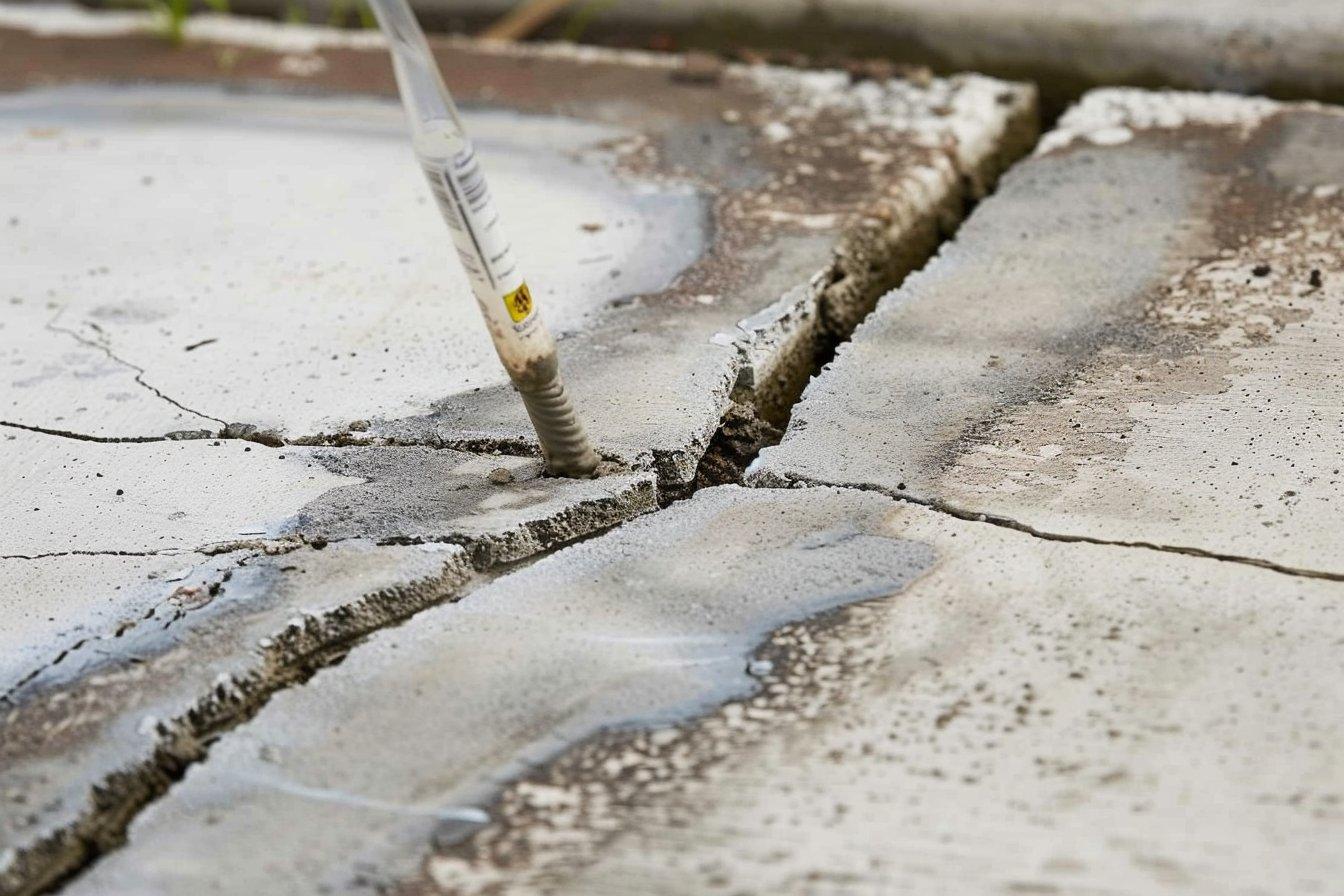Concrete Crack Repair: Essential Methods and Solutions for Lasting Fixes
Concrete, while durable, is not immune to cracking. Whether it's your driveway, patio, or foundation, cracks in concrete can be unsightly and potentially compromise the structure's integrity. This comprehensive guide will explore effective concrete crack repair methods, helping you understand how to fix concrete cracks and restore your surfaces to their former glory.

What causes cracks in concrete?
Concrete cracks can occur due to various factors. The most common causes include:
-
Shrinkage: As concrete cures and dries, it naturally shrinks, which can lead to surface cracks.
-
Temperature fluctuations: Extreme temperature changes cause concrete to expand and contract, resulting in stress cracks.
-
Heavy loads: Excessive weight or pressure on concrete surfaces can cause them to crack over time.
-
Soil settlement: When the ground beneath concrete shifts or settles unevenly, it can lead to cracks in the structure above.
-
Tree roots: Growing roots can exert pressure on concrete, causing it to crack or lift.
Understanding the underlying cause is crucial for determining the most appropriate repair method and preventing future issues.
How can you assess the severity of concrete cracks?
Before attempting any repairs, it’s essential to evaluate the extent of the damage:
-
Measure the width of the crack: Hairline cracks (less than 1/8 inch wide) are usually cosmetic, while wider cracks may indicate structural issues.
-
Check for movement: If the crack widens or narrows with temperature changes or when pressure is applied, it may require professional attention.
-
Observe the crack pattern: Straight line cracks are often less concerning than those that branch out or form irregular patterns.
-
Look for signs of settling: If one side of the crack is higher than the other, it could indicate foundation problems.
-
Check for water seepage: Cracks that allow water to penetrate can lead to further damage and should be addressed promptly.
What are the most effective concrete crack repair methods?
Several techniques can be employed to fix concrete cracks, depending on their size and location:
-
Epoxy injection: This method is ideal for structural cracks. A low-viscosity epoxy is injected into the crack, creating a strong bond that restores the concrete’s integrity.
-
Stitching: For wider cracks, metal staples or stitches can be installed across the crack to hold it together, then covered with a patching compound.
-
Routing and sealing: This involves widening the crack with a concrete saw or grinder, then filling it with a flexible sealant.
-
Gravity filling: For horizontal cracks, a low-viscosity resin can be poured into the crack, which then hardens to create a strong bond.
-
Polymer-modified cementitious coating: This method involves applying a thin layer of polymer-modified cement over the entire surface, effectively hiding small cracks and preventing new ones.
What tools and materials are needed to repair cracked concrete?
To successfully repair concrete cracks, you’ll need the following:
-
Concrete patching compound or epoxy
-
Wire brush or grinder for surface preparation
-
Caulking gun for applying sealant or epoxy
-
Trowel or putty knife for smoothing the repair
-
Safety gear: goggles, gloves, and dust mask
-
Concrete cleaner or degreaser
-
Crack chaser (for routing larger cracks)
-
Injection ports and caps (for epoxy injection)
Having the right tools on hand will ensure a more efficient and effective repair process.
What are some unique tips for long-lasting concrete crack repairs?
When repairing concrete cracks, consider these expert tips:
-
Timing matters: Perform repairs during dry weather and when temperatures are moderate for optimal curing.
-
Clean thoroughly: Remove all debris and loose concrete from the crack before applying any repair material.
-
Moisture is key: Slightly dampen the crack before applying cementitious repair products to improve bonding.
-
Consider flexibility: Use flexible sealants for cracks that may continue to move with temperature changes.
-
Don’t rush: Allow adequate curing time for the repair material before subjecting it to foot traffic or heavy loads.
How much does professional concrete crack repair cost?
The cost of professional concrete crack repair can vary widely depending on the extent of the damage and the chosen repair method. Here’s a general pricing guide:
| Repair Method | Average Cost Range | Factors Affecting Cost |
|---|---|---|
| Epoxy Injection | $300 - $800 | Crack length, accessibility |
| Stitching | $400 - $1,000 | Number of stitches needed |
| Routing and Sealing | $200 - $600 | Length of crack, type of sealant |
| Gravity Filling | $150 - $400 | Size of crack, amount of resin |
| Surface Coating | $500 - $1,500 | Size of area to be coated |
Prices, rates, or cost estimates mentioned in this article are based on the latest available information but may change over time. Independent research is advised before making financial decisions.
For minor cracks, DIY repair kits are available at home improvement stores, typically ranging from $20 to $100, depending on the kit’s contents and the repair method.
In conclusion, understanding concrete crack repair methods is crucial for maintaining the integrity and appearance of your concrete surfaces. By assessing the damage accurately and choosing the appropriate repair technique, you can effectively fix concrete cracks and prevent further deterioration. Whether you opt for a DIY approach or professional services, addressing cracks promptly will help extend the life of your concrete and maintain its structural soundness.




